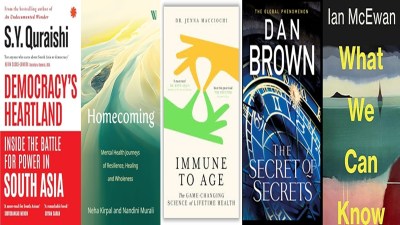It’s not really a restaurant—although it’s known as one. It’s located in a hotel, has restaurant-style seating acccented with banquettes, a hostess desk and a side station. The table setting is south Indian with a centrepiece—little silver urns with podi in them. It’s very much a restaurant and yet, once seated, it’s quite easy to forget that. The reason is the staff—manager Teresa and her team. Over nine years, with a small break in-between, Teresa has made Dakshin, the south Indian restaurant at Sheraton New Delhi in Saket, a home-style dining experience. It’s quite remarkable and distinct from other restaurants at hotels. There is warmth, but Teresa won’t shy away from telling you that the jasmine ringlets are only offered to lady diners—and this with such natural ease and charm that you won’t mind. House rules apply here.
Dakshin has, for long, maintained its unassuming commitment to south Indian cuisine in the hectic culinary scene in the capital, making it the finest in its category. On a Wednesday night, it’s buzzing. Every table is occupied. There is even a single diner, reading off his smartphone and partaking of what looks like an elaborate meal. The credit for that, though, goes to the casual ambience of the restaurant, which makes it permissible to eat a complex meal without the pressure of ‘celebrating’ or ‘experiencing’ something. A few weeks ago, I am told, a group of eight Buddhist monks from Los Angeles came by for dinner. At the start of the meal, they all raised their heavily-laden thalis above their heads and said a short prayer of gratitude. A natural silence descended on the restaurant when this surprising ritual took place. Teresa says it’s one of the most beautiful moments she has experienced here. It made everyone want to break for a prayer in gratitude. It isn’t done often enough and, indeed, she is right. How often do we take food for granted and how often do we take hospitality for granted as well?
I am here to try out the cuisine from Kerala. Vishu is a few days away. On that day, there will be a special sadya thali for lunch, but tonight it’s a full menu with Kerala favourites. Velu, the chef in-charge at Dakshin, has an interesting personal history. He is from Tamil Nadu, but was born and raised in Kerala. Our server for the night is Babu from Kerala. Teresa herself is from Tamil Nadu, but was born and raised in Delhi. Sporting a Shri Krishna tattoo, she tells me that she has a special place in her heart for the mischievous god.
The thalis are covered with banana leaves and dotted with pretty little bowls that make a pretty picture, but will the food live up to the visual setting or is it the famed hype at play again? The set-course meal, served on a thali, has servings of the stew. The vegetarian option, pathakari stew, is a delicious ‘broth’ of a mélange of vegetables cooked in coconut milk and topped off with ginger, onion and garlic. As a flavour balance, pachakari varattiyathe, or assorted vegetables, is cooked in an onion-tomato paste, embellished with the tarty bite of tamarind sauce. There is meen moilee simmered in coconut milk (the most familiar of all dishes from Kerala) and served with appams, which frankly outdo the malabar parathas, no matter how comfortable the north Indian palate is with wheat flour.
The most special dish on the menu is also the simplest: avial, vegetables cooked in a paste of roasted coconut, coriander and chillies. One can eat this simple dish found in every home in Kerala with steamed rice, a dab of curd, crushed poppadoms and a pinch of salt. It’s a wholly satisfying and authentic meal on its own. To wrap up the meal, we end with some filter metre coffee. Chef Velu brings out two steel tumblers, holding one high above his head and the other low below his knee, and starts to pour the coffee in a steady stream from one to another. It is mesmerising to watch and the flow could indeed be a metre long! It has got others in the restaurant watching as well—one imagines ordering coffee that will keep them up for most of the night, but who is complaining?
Advaita Kala is a writer, most recently of the film Kahaani. She is also a former hotelier having worked in restaurants in India and abroad








